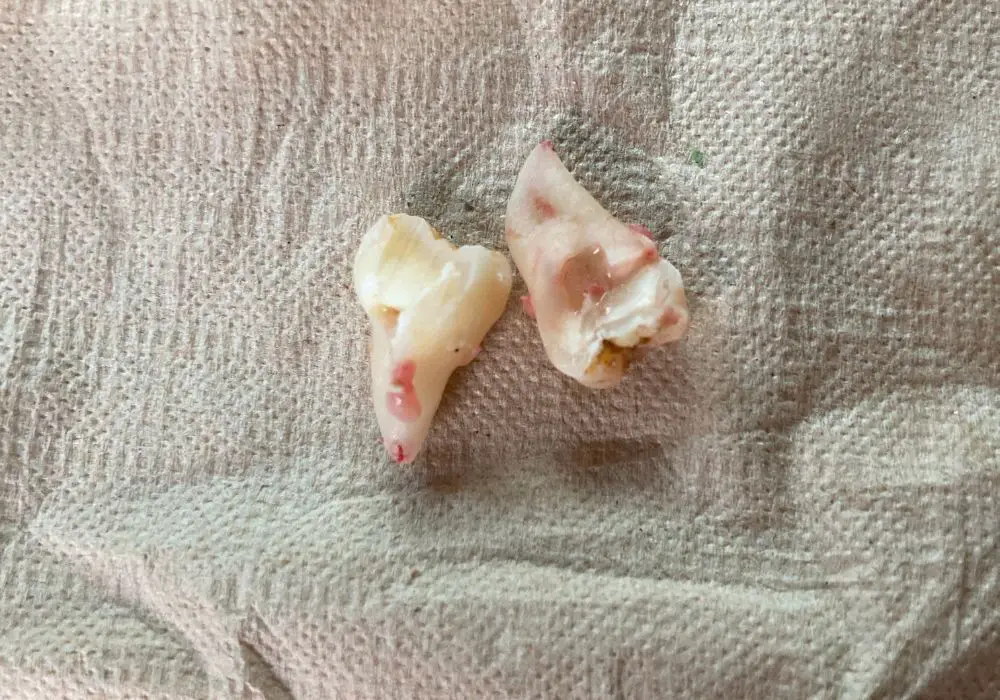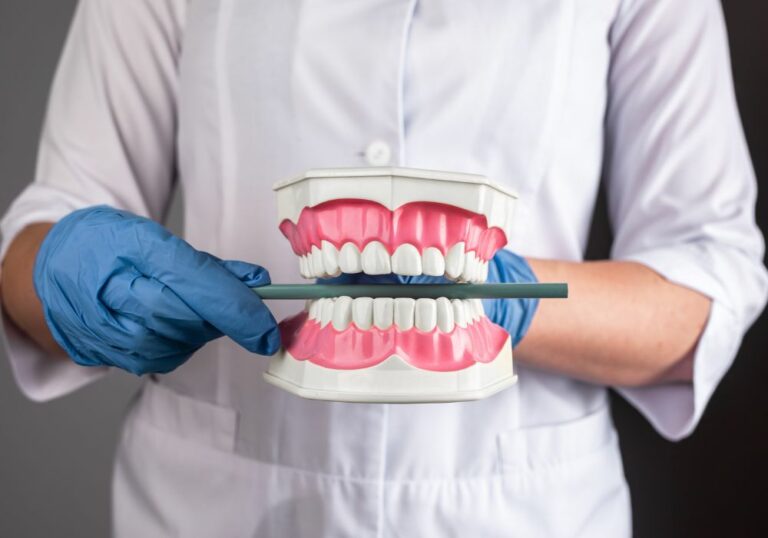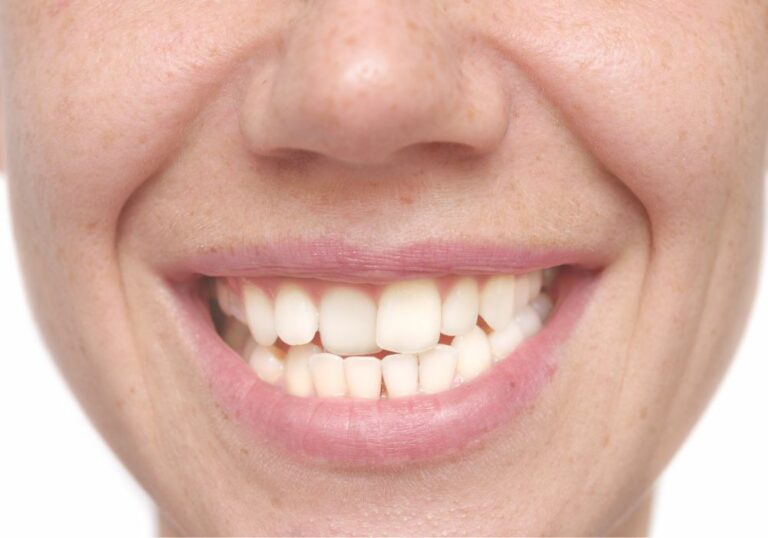Have you recently had a wisdom tooth extraction and are now experiencing pain or discomfort? It’s possible that you may have dislodged a blood clot in the socket where the tooth was removed. A blood clot is a crucial part of the healing process after a tooth extraction, as it helps to protect the bone and nerves in the socket. If the blood clot becomes dislodged, it can cause a painful condition known as dry socket.
One common question that people have is whether or not they can feel a blood clot dislodge in their wisdom tooth socket. The answer is not straightforward, as some people may feel a sensation of something coming loose, while others may not feel anything at all. However, there are some signs to watch out for that may indicate that a blood clot has become dislodged, such as increased pain, bleeding, or a bad taste or odor in your mouth. If you are experiencing any of these symptoms, it’s important to contact your dentist or oral surgeon right away.
While it can be concerning to think that you may have dislodged a blood clot in your wisdom tooth socket, it’s important to remember that this is a common complication after a tooth extraction. By taking proper care of the extraction site and following your dentist’s instructions, you can help to prevent dry socket and ensure a smooth and speedy recovery.
Understanding Blood Clots and Wisdom Teeth

When you have a wisdom tooth extraction, a blood clot forms in the socket to protect the bone and nerves underneath. This clot is an essential part of the healing process, and it prevents bacteria from entering the wound.
If the blood clot is disturbed or dislodged, it can cause a painful condition called dry socket. This occurs when the clot is lost before the wound has a chance to heal, leaving the bone and nerves exposed.
It’s important to take care of the blood clot after your wisdom tooth extraction to avoid complications. Here are some tips to help you protect the clot:
- Avoid using straws or smoking, as the suction can dislodge the clot.
- Don’t rinse your mouth vigorously, as this can also disturb the clot.
- Eat soft foods and avoid hard, crunchy, or sticky foods that can get stuck in the socket.
- Keep your mouth clean by gently brushing your teeth and tongue, but avoid the extraction site.
- Follow your dentist’s instructions for pain management and care.
If you experience pain or discomfort after your wisdom tooth extraction, it’s essential to contact your dentist. They can evaluate your symptoms and determine if you have a dry socket or another complication.
Overall, taking care of your blood clot after a wisdom tooth extraction is crucial for a successful and pain-free recovery.
Can You Feel a Blood Clot Dislodge?
After a wisdom tooth extraction, it is common to experience bleeding and the formation of a blood clot in the socket. This clot is essential for proper healing and should not be disturbed or dislodged. However, it is possible to feel a blood clot dislodge, and this can be a cause for concern.
If you feel a sudden rush of blood in your mouth or notice that the bleeding has increased significantly, it could be a sign that the blood clot has dislodged. You may also experience pain or discomfort in the affected area.
It is important to note that not all bleeding after a tooth extraction is a sign of a dislodged blood clot. Some bleeding is normal and can last for up to 24 hours after the procedure. However, if the bleeding is excessive or continues beyond 24 hours, you should contact your dentist or oral surgeon immediately.
To prevent the dislodgement of the blood clot, it is crucial to follow the post-operative instructions provided by your dentist or oral surgeon. These may include avoiding certain foods, refraining from smoking or using straws, and keeping the affected area clean.
If you do feel a blood clot dislodge, there are a few things you can do to help stop the bleeding and promote healing. These include:
- Applying gentle pressure to the affected area with a clean gauze or cloth
- Rinsing your mouth with salt water to help soothe the area and promote healing
- Avoiding strenuous physical activity or excessive talking to prevent further irritation to the area
In summary, feeling a blood clot dislodge after a wisdom tooth extraction can be a cause for concern. If you experience excessive bleeding or pain, it is important to contact your dentist or oral surgeon immediately. Following post-operative instructions and taking steps to promote healing can help prevent the dislodgement of the blood clot and ensure proper healing.
Causes of Blood Clot Dislodgement
When a wisdom tooth is extracted, a blood clot forms in the empty socket to protect the bone and nerves underneath. However, sometimes the blood clot can become dislodged, leading to a painful condition called dry socket. Here are some common causes of blood clot dislodgement:
- Smoking: Cigarette smoke contains chemicals that can interfere with the healing process and cause the blood clot to dislodge.
- Drinking through a straw: Sucking on a straw can create a vacuum in your mouth, which can also dislodge the blood clot.
- Spitting or rinsing too vigorously: Any activity that creates suction or pressure in your mouth can cause the blood clot to dislodge.
- Eating hard or crunchy foods: Chewing on hard or crunchy foods can also cause the blood clot to dislodge.
- Poor oral hygiene: Bacteria in your mouth can infect the extraction site and cause the blood clot to dislodge.
It’s important to follow your dentist’s instructions carefully after a wisdom tooth extraction to avoid dislodging the blood clot and developing dry socket. This may include avoiding smoking, using a special mouth rinse, and sticking to a soft food diet for a few days.
Symptoms of a Dislodged Blood Clot

If you have recently had a wisdom tooth extraction, it is essential to be aware of the signs of a dislodged blood clot. A blood clot is a natural part of the healing process after a tooth extraction, and its purpose is to protect the wound and promote healing.
If the blood clot becomes dislodged, it can lead to a condition called dry socket, which can be painful and delay the healing process. Here are some symptoms to watch out for:
- Pain: Pain is a common symptom of a dislodged blood clot. You may experience a throbbing or aching pain in the extraction site that may radiate to your ear, temple, or neck.
- Bleeding: A dislodged blood clot can cause bleeding from the extraction site. If you notice bleeding that does not stop after applying pressure, contact your dentist immediately.
- Bad breath: A foul odor or taste in your mouth can be a sign of a dislodged blood clot. This is because the blood clot helps to protect the wound from bacteria, and a dislodged clot can lead to an infection.
- Visible bone: If you can see the bone in the extraction site, it is a sign that the blood clot has been dislodged.
- Empty socket: An empty socket is another sign of a dislodged blood clot. The extraction site may appear empty or have a dry appearance.
If you experience any of these symptoms after a wisdom tooth extraction, it is important to contact your dentist immediately. They can evaluate your condition and provide appropriate treatment to promote healing and prevent complications.
Preventing Blood Clot Dislodgement
If you’ve recently had a wisdom tooth extraction, it’s important to take steps to prevent blood clot dislodgement. Here are some tips to help you avoid this complication:
Oral Hygiene Practices
Good oral hygiene practices are essential to prevent blood clot dislodgement. Here are some tips to keep your mouth clean and healthy:
- Brush your teeth gently and avoid the extraction site for the first 24 hours after surgery.
- After 24 hours, you can gently brush the extraction site using a soft-bristled toothbrush.
- Rinse your mouth with warm salt water several times a day to keep the area clean.
- Avoid using mouthwash for the first few days after surgery, as it can irritate the extraction site.
- Don’t smoke or use tobacco products, as they can slow down the healing process and increase the risk of blood clot dislodgement.
Avoiding Certain Foods and Drinks
In addition to good oral hygiene practices, it’s important to avoid certain foods and drinks that can increase the risk of blood clot dislodgement. Here are some things to avoid:
- Crunchy or hard foods that can irritate the extraction site, such as chips, nuts, and popcorn.
- Hot or spicy foods that can cause pain and inflammation.
- Carbonated drinks, as the bubbles can dislodge the blood clot.
- Straws, as the suction can also dislodge the blood clot.
By following these tips, you can help prevent blood clot dislodgement and promote a speedy recovery after your wisdom tooth extraction.
When to Seek Medical Attention
If you suspect that you have a blood clot in your wisdom tooth, it’s important to seek medical attention immediately. Blood clots can be dangerous and potentially life-threatening if not treated promptly. Here are some signs and symptoms that you should watch out for:
- Severe pain that does not go away with painkillers
- Swelling in the jaw or cheek
- Redness or warmth in the affected area
- Fever
- Difficulty opening your mouth
- Difficulty swallowing
- Numbness or tingling in the mouth or face
If you experience any of these symptoms, it’s important to seek medical attention right away. Your dentist or doctor can perform an examination and determine whether you have a blood clot or another dental issue.
In some cases, a blood clot in the wisdom tooth can lead to a condition called a dry socket. This occurs when the blood clot becomes dislodged or dissolves before the socket has had a chance to heal. Dry socket can be very painful and can lead to infection if not treated promptly.
If you have a blood clot in your wisdom tooth, your dentist may recommend antibiotics to prevent infection, painkillers to manage your pain, and possibly a procedure to remove the clot. In some cases, a blood clot may dissolve on its own without any treatment.
Remember, if you suspect that you have a blood clot in your wisdom tooth, it’s important to seek medical attention right away. With prompt treatment, you can reduce your risk of complications and get back to feeling like yourself again.
Treatment Options for Dislodged Blood Clots

If you have a dislodged blood clot in your wisdom tooth socket, it is essential to seek treatment immediately. Leaving the socket empty can cause pain, swelling, and even lead to an infection. Here are some treatment options for dislodged blood clots:
Home Remedies
If you experience a dislodged blood clot, you can try some home remedies to relieve the pain and promote healing. Here are some home remedies that you can try:
- Bite down on a moist teabag: The tannins in tea can help stop bleeding and promote blood clotting.
- Rinse with saltwater: Saltwater can help reduce swelling and promote healing.
- Apply a cold compress: A cold compress can help reduce swelling and relieve pain.
Professional Dental Care
If home remedies do not work, it is essential to seek professional dental care. Your dentist may recommend the following treatments:
- Socket irrigation: Your dentist may flush out the socket with saline solution to remove any debris and promote healing.
- Medications: Your dentist may prescribe pain relievers and antibiotics to help manage pain and prevent infection.
- Dressing: Your dentist may place a dressing over the socket to protect it and promote healing.
In severe cases, your dentist may recommend a surgical procedure to remove any debris and promote healing. It is essential to follow your dentist’s instructions carefully to ensure a quick and full recovery.
Remember, if you experience a dislodged blood clot, seek treatment immediately. Leaving the socket empty can cause pain, swelling, and even lead to an infection.
Frequently Asked Questions
How do I know if my blood clot has been dislodged after wisdom tooth extraction?
If you experience sudden bleeding, pain, or bad taste in your mouth, it may indicate that your blood clot has been dislodged. You may also notice an empty socket where your tooth used to be. If you suspect that your blood clot has been dislodged, contact your dentist or oral surgeon immediately.
What are the signs of early stage dry socket after wisdom tooth extraction?
Early stage dry socket may cause severe pain that radiates to your ear, eye, or neck. You may also notice bad breath or an unpleasant taste in your mouth. If you experience any of these symptoms, contact your dentist or oral surgeon for treatment.
Can a dislodged blood clot reform after wisdom tooth extraction?
Yes, a dislodged blood clot can reform if you follow proper aftercare instructions. Avoid smoking, drinking through a straw, or spitting for the first few days after your extraction. Apply ice packs to your face to reduce swelling and take pain medication as prescribed. Be sure to keep the extraction site clean by gently rinsing your mouth with saltwater.
What should I do if I lost my blood clot 5 days after wisdom tooth extraction?
If you lost your blood clot 5 days after your extraction, it may indicate that you have developed a dry socket. Contact your dentist or oral surgeon for treatment. In the meantime, you can use over-the-counter pain medication and apply a warm compress to your face to alleviate pain.
Can talking cause a dislodged blood clot after wisdom tooth extraction?
Talking alone is unlikely to dislodge a blood clot after wisdom tooth extraction. However, excessive talking or laughing may increase blood flow to the extraction site, which can delay the healing process. It is best to avoid excessive talking or laughing for the first few days after your extraction.
Is it normal to have throbbing pain after wisdom tooth extraction even if there’s no dry socket?
Yes, it is normal to experience some degree of pain and discomfort after wisdom tooth extraction, even if there is no dry socket. However, if the pain is severe or persistent, it may indicate an infection or other complication. Contact your dentist or oral surgeon for evaluation and treatment.






